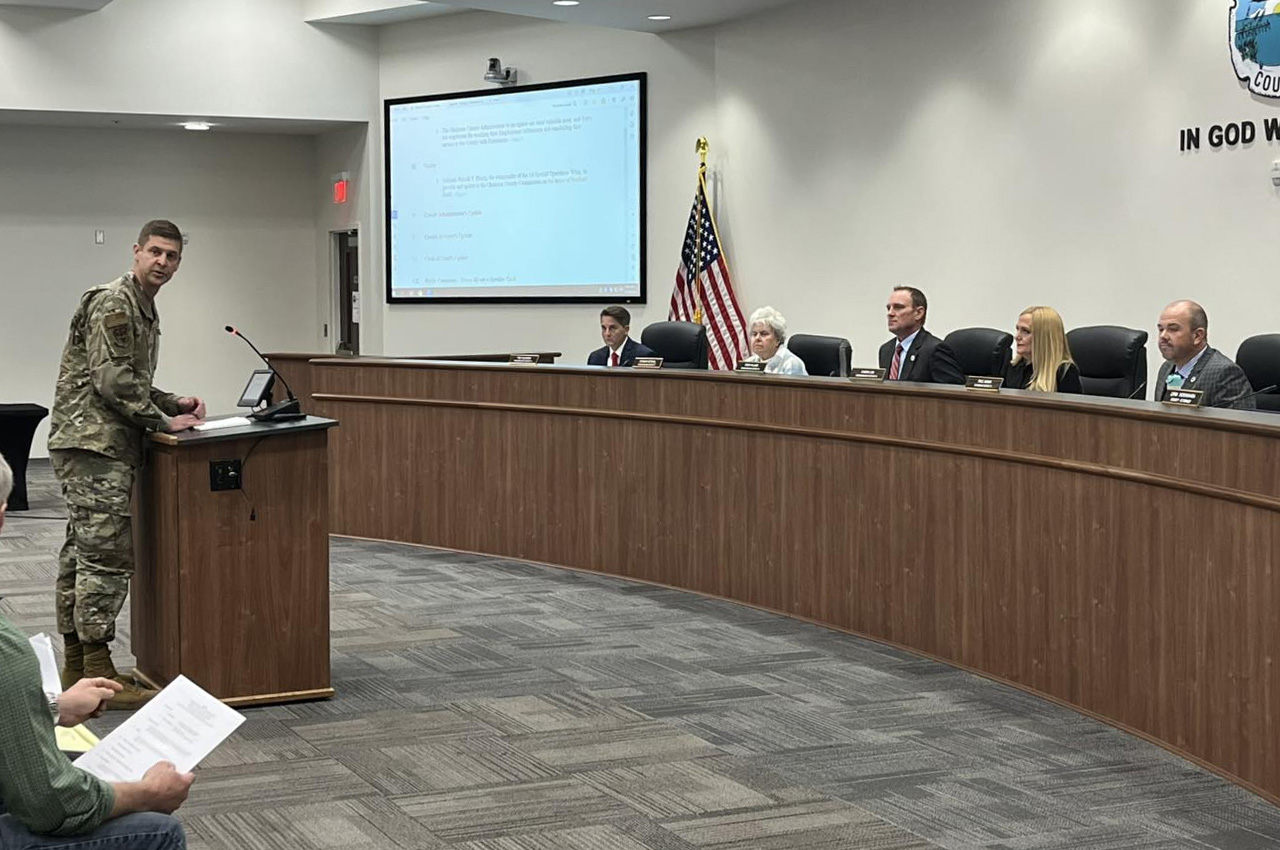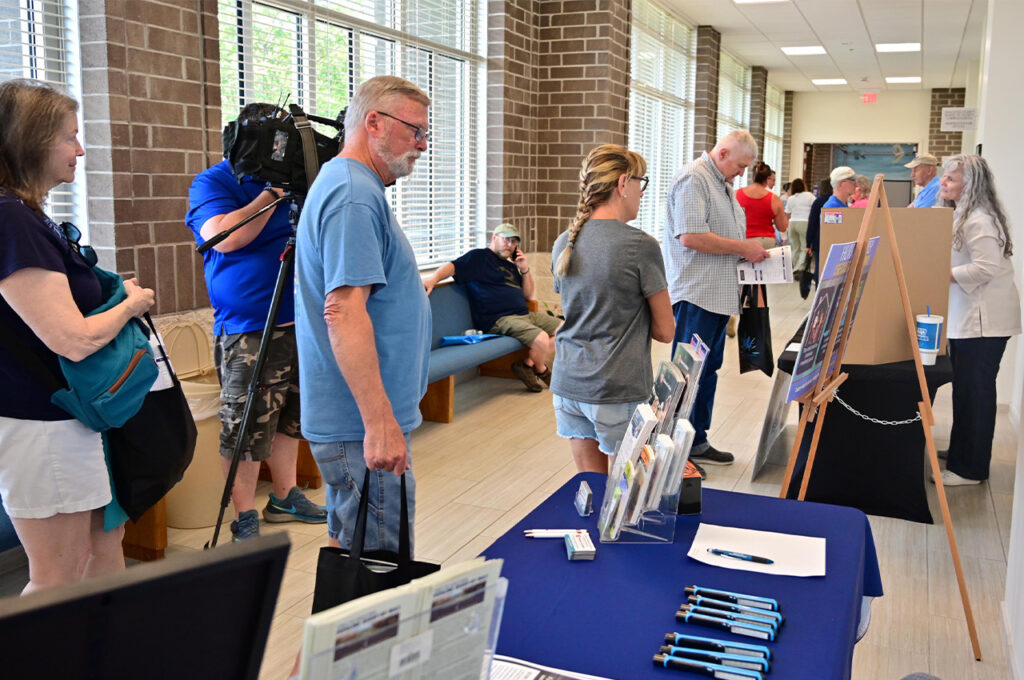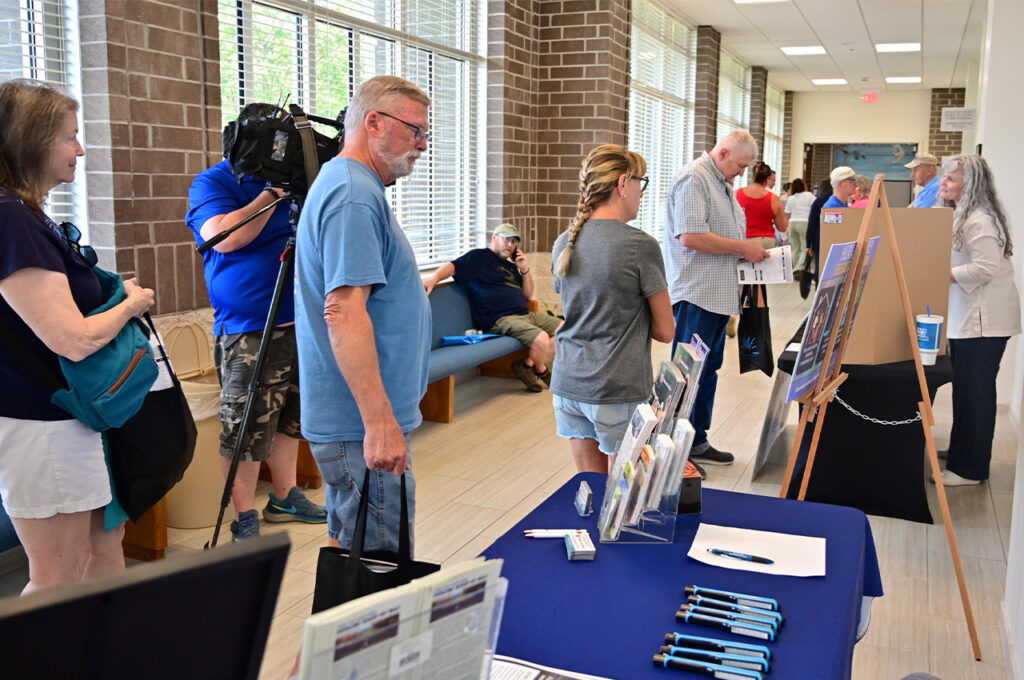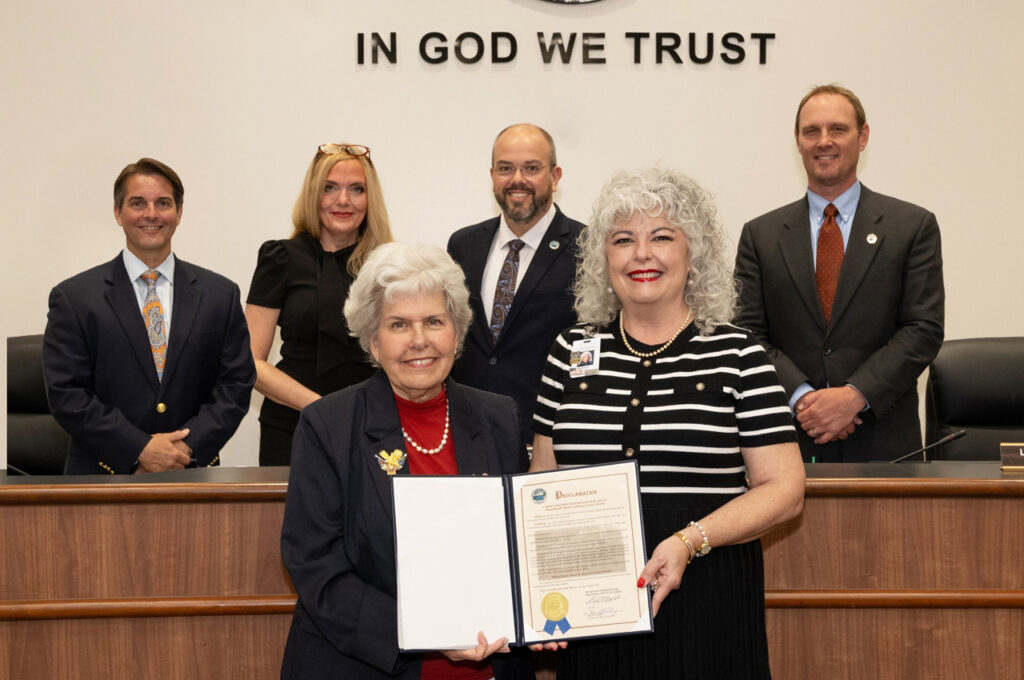Hours after greeting airmen returning from an unplanned deployment, Col. Patrick T. Dierig provided his update to the Okaloosa County Commission on Tuesday.
- The commander of the 1st Special Operations Wing emphasized the strong relationship between Hurlburt Field and its surrounding communities while outlining current challenges facing base personnel and their families.
Dierig’s early morning duties illustrated the base’s ongoing operations. “At 2:36 a.m. this morning, I was on the ramp welcoming home some folks who just came back from deployment on a C-17,” he told commissioners. “They launched off of alert with hours’ notice. We did not plan for them to deploy, but there was a crisis in the world and they responded.”
In his address, Dierig outlined the dual mission of the 1st Special Operations Wing (1SOW). “We really serve two purposes. Number one, inside AFSOC, we are the special operations lead wing for the Air Force. On the special operation side, we’re the Air Force component to special operations,” Dierig explained, noting that about a third of their personnel are deployed at any given time.
Dierig outlined three established priorities: mission first, developing Hurlburt Field as a world-class installation, and pathfinding. For his second priority, he emphasized the importance of making Hurlburt Field exceptional for its 23,000 personnel, focusing on both mission quality and quality of life.
- The pathfinding priority involves innovation, with Dierig noting that many Air Force initiatives begin in special operations before moving to conventional forces.
Housing remains a significant concern, with Dierig reporting that service members living off-base are spending large portions of their base pay to supplement their housing allowance. He mentioned ongoing renovations at Live Oak housing section and expressed interest in finding creative housing solutions with local partners.
Regarding childcare, Dierig highlighted unique challenges facing military families. “A lot of our airmen work on shift work. They might work in the middle of the night. Many of them have to launch off alert,” he said, noting that while the base childcare center is being renovated, significant gaps in service remain.
Traffic concerns took on a new dimension when Dierig tied them directly to military readiness. He cited two recent incidents: a fatal accident in early 2024 that closed Highway 98 for four hours and an October 22 construction project that caused severe delays, including three-and-a-half-hour school bus commutes.
- “The traffic issue for me is a readiness issue,” Dierig emphasized, advocating for an east-west parallel road to Highway 98.
The commander’s newly added fourth priority focused on mental health resources, particularly for military families. “It’s just really hard to be a military kid and a military dependent,” Dierig said, noting that many families have relocated nine, ten, or even fifteen times.
Commissioner Carolyn Ketchel, a licensed clinical social worker, acknowledged the mental health challenges and highlighted the county’s mental health diversion program, one of only three in Florida. She also shared a personal connection to Hurlburt Field through her husband, who spent 23 years there “before it was the Special Ops base it is now.”
Ketchel expressed frustration with the lack of progress on traffic solutions, referencing her year-long participation in roundtable discussions. She offered to work directly with base leadership on childcare solutions, noting recent success in securing childcare for Eglin Air Force Base.
- “There’s money in the federal budget. If we can expand that, I would be glad to work with you to advocate for that,” Ketchel said.
Commissioner Paul Mixon credited the strong partnerships between the military and local community. “It wouldn’t exist to be that style of community if we didn’t have the partnership on both sides,” Mixon said. “Thank you for the work you’re doing and glad you’re back here at Hurlburt.”
Dierig concluded by extending his gratitude beyond military service members to include teachers, healthcare workers, road crews, and law enforcement. “They serve just as much as you and I,” he said, emphasizing the comprehensive nature of community service.





